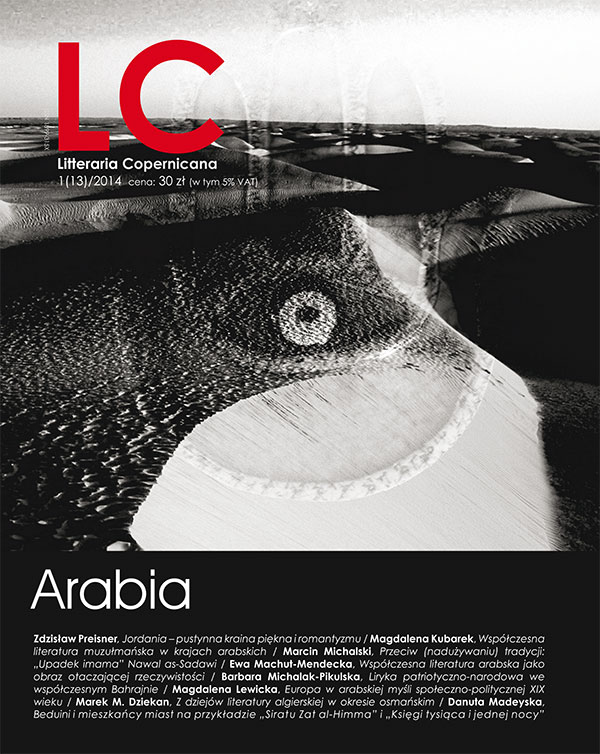AGAINST (MISUSING) TRADITION: NAWAL EL SAADAWI’S NOVEL THE FALL OF THE IMAM
DOI:
https://doi.org/10.12775/LC.2014.003Keywords
Nawal El Saadawi, Islamic feminism, Egyptian novel, Arabic novel, Arabo- Islamic tradition, intertextualityAbstract
In her 1987 novel Suqut al-Imam (The Fall of the Imam) Nawal El Saadawi presents and criticizes the reality in an unnamed theocratic state which has many similarities to Egypt. She deals with the problem of misusing tradition to oppress women. The sources of tradition, which usually are texts, can be divided into three layers: religious, secular (Arabo-Islamic) and Egyptian pre-Islamic. Intertextual references to these old texts and traditions show constant sources of women’s oppression which has various changing forms. Tradition is fixed as constant, but is challenged by at least two factors: the passage of time and Bint Allah, the novel’s main character. The opposition constant vs. changing is shown in the author’s literary technique: some events are repeated and assume various manifestations, some characters change into others, both evil and God have more than one face.
Downloads
Published
How to Cite
Issue
Section
Stats
Number of views and downloads: 652
Number of citations: 0



